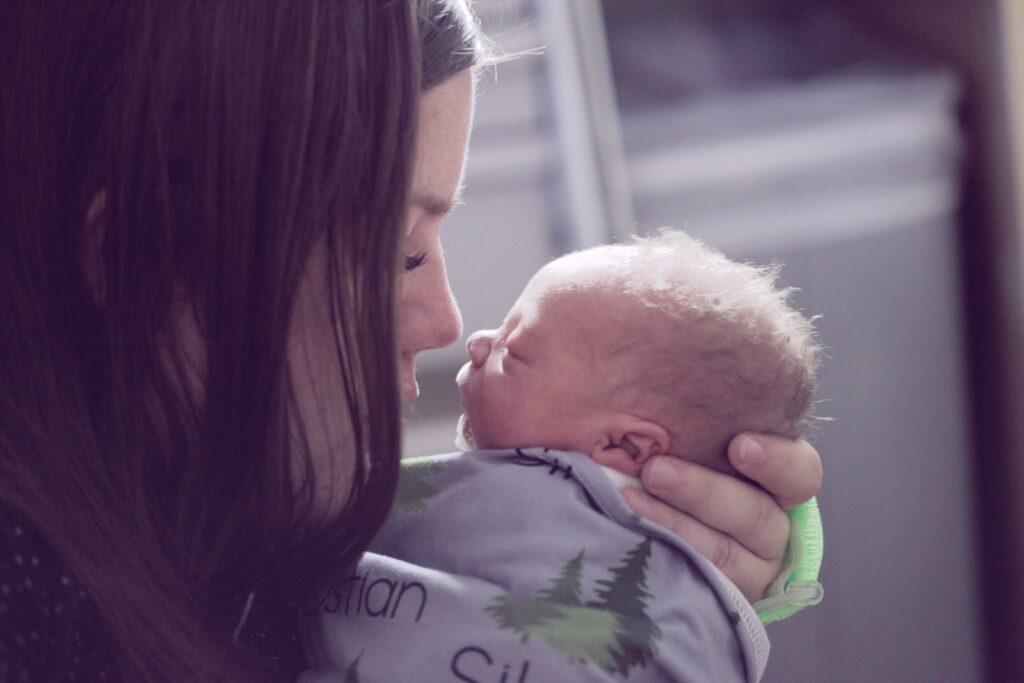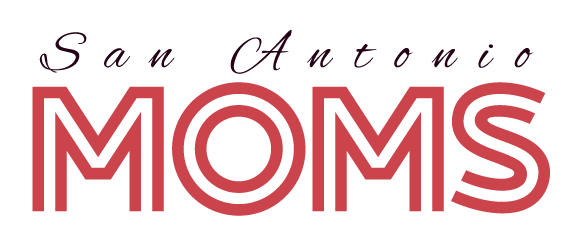
San Antonio moms, like moms everywhere, experience a range of emotions and physical challenges during the postpartum period. Recovery from childbirth can be a long and difficult process, but with the right guidance and support, new moms can take care of themselves and their babies. This guide will provide San Antonio moms with tips and resources for postpartum recovery, including information on postpartum care, exercise, and mental health.
Postpartum care is an important aspect of recovery for new moms. San Antonio has many resources available for postpartum care, including OBGYNs and hospitals that offer support and guidance for new moms. These resources can help new moms navigate the physical and emotional challenges of recovery, such as perineal care and breastfeeding support. With the right care and attention, new moms can recover from childbirth and feel confident in their abilities to care for their babies.
In addition to postpartum care, exercise is also an important aspect of recovery for new moms. Exercise can help new moms regain strength and energy after childbirth, as well as improve their mental health. San Antonio offers a variety of exercise options for new moms, including postpartum fitness classes and outdoor activities. By incorporating exercise into their recovery routine, new moms can feel more confident and empowered as they navigate the challenges of motherhood.
Understanding Postpartum Recovery
Postpartum recovery is the period of time following childbirth when a mother’s body is healing from the changes that occurred during pregnancy and delivery. The fourth trimester, which is the first three months after giving birth, is a crucial time for a new mother to focus on her recovery and self-care.
The postpartum recovery timeline can vary for each individual, but there are general guidelines that most women can follow. During the first few days after childbirth, a mother can expect to experience afterpains and bleeding. Afterpains are cramps that help the uterus return to its pre-pregnancy size, while bleeding is the body’s way of shedding the lining of the uterus.
In the first few weeks, a mother’s body will continue to recover. She may experience soreness, fatigue, and breast engorgement as her milk comes in. It is important for a new mother to rest as much as possible during this time and to avoid lifting heavy objects or doing strenuous activities.
As the weeks progress, a mother’s body will continue to heal. She may experience mood changes, such as postpartum depression or anxiety, which can be treated with therapy or medication. A mother should also focus on her nutrition and hydration, as well as gentle exercise to help her body recover.
Overall, postpartum recovery is a crucial time for a mother to focus on her physical and emotional health. By taking care of herself, a mother can better care for her newborn and enjoy the early stages of motherhood.
Physical Changes and Healing
After giving birth, a woman’s body goes through a lot of physical changes and healing. Here are some important things to keep in mind during the postpartum period.
C-Section Recovery
If you had a C-section delivery, your body will need a longer time to heal as it is a major surgery. You may experience some pain, swelling, and discomfort around the incision site. It is important to take care of the incision site to prevent infection. Your healthcare provider will advise you on how to take care of your incision site, such as keeping it clean and dry.
It is normal to experience some vaginal bleeding and discharge after a C-section delivery. You may also have trouble with bowel movements due to constipation. Your healthcare provider may recommend stool softeners and gentle exercise to help with bowel movements.
Vaginal Birth Healing
If you had a vaginal birth, you may experience some soreness and discomfort in the perineal area. If you had an episiotomy or vaginal tear during delivery, it may take some time to heal. Your healthcare provider may recommend using an ice pack or sitz bath to help with the pain and promote healing.
You may experience vaginal bleeding and discharge after delivery, which is called lochia. It is important to use maxi pads instead of tampons during this time to prevent infection. Your healthcare provider may also recommend using a peri bottle to clean the perineal area after using the bathroom.
Perineum and Pelvic Floor Recovery
Both C-section and vaginal birth deliveries can cause stretching and/or injuring of the pelvic floor muscles. This can lead to incontinence and pelvic pain. Doing Kegel exercises can help strengthen the pelvic floor muscles and improve bladder and bowel control.
It is important to listen to your body and not overexert yourself during the postpartum period. Your body needs time to heal and recover. If you experience any unusual symptoms or have concerns about your recovery, contact your healthcare provider.
Nutrition and Hydration
Proper nutrition and hydration are essential for a healthy postpartum recovery. A nutrient-dense diet full of complex carbs, fiber, healthy fats, and protein, plus adequate hydration, can help heal the body. A healthy postpartum eating plan is the way to go to stave off bone loss, replenish iron stores, head off hemorrhoids, and much, much more. It also promotes milk production, which is crucial for breastfeeding mothers.
To ensure adequate hydration, new moms should drink plenty of water. For breastfeeding mothers, 10 to 15 glasses of water a day are required to quench thirst and produce enough breast milk. Plus, the more fluids you consume, the faster your body can rebuild and regenerate.
New moms should also focus on eating nutrient-dense foods that provide the necessary calories, protein, and nutrients to support their recovery. Here are some tips for a healthy postpartum diet:
- Eat warm, digestible foods. Soups and stews make a great foundation for convenient postpartum meals.
- Focus on whole, unprocessed foods, such as fruits, vegetables, whole grains, nuts, and seeds.
- Incorporate iron-rich foods, such as lean meats, poultry, fish, beans, and leafy greens, to replenish iron stores lost during childbirth.
- Aim for at least 25-30 grams of fiber per day to promote healthy digestion and prevent constipation.
- Include healthy fats, such as avocados, nuts, and olive oil, to support brain function and hormone production.
- Choose protein-rich foods, such as eggs, lean meats, poultry, fish, beans, and lentils, to support tissue repair and growth.
By following these guidelines, new moms can support their postpartum recovery and promote optimal health and well-being.
Breastfeeding and Engorgement
Breastfeeding is a crucial part of postpartum recovery for both the mother and the baby. However, it can be challenging, especially if the mother experiences breast engorgement. Engorgement occurs when the breasts become overly full of milk, making them hard, painful, and difficult for the baby to latch onto.
To prevent engorgement, the mother should breastfeed frequently, at least every two to three hours, and ensure that the baby is latching on correctly. If engorgement occurs, the following tips may help:
- Apply a warm compress or take a warm shower before breastfeeding to help the milk flow more easily.
- Use a breast pump to express some milk before breastfeeding to soften the breast and make it easier for the baby to latch on.
- Massage the breast gently while breastfeeding to encourage milk flow.
- Use nipple balm to soothe sore and cracked nipples.
If the mother is unable to breastfeed or pump regularly, she may experience severe engorgement. In this case, she can use cabbage leaves to reduce the swelling. Simply place cold cabbage leaves on the breasts for 20 minutes at a time, several times a day.
It is important to note that breast engorgement usually subsides within a few days as the mother’s milk supply adjusts to the baby’s needs. If the engorgement persists or the mother experiences other breastfeeding problems, she should seek advice from a lactation consultant or healthcare provider.
Mental Health and Emotional Well-being
Postpartum depression, anxiety, and baby blues are common mental health concerns that new mothers may experience after giving birth. It is essential to prioritize mental health and emotional well-being during the postpartum period.
According to the Mental Health Association of Greater San Antonio, postpartum depression affects approximately 15% of new mothers. Symptoms may include feelings of sadness, anxiety, irritability, and difficulty sleeping. It is crucial to seek professional help if these symptoms persist for more than two weeks.
The Postpartum Depression Center of San Antonio offers counseling services to new mothers experiencing postpartum depression. They provide individual and group therapy sessions, medication management, and support groups.
In addition to seeking professional help, new mothers can also prioritize their mental health by practicing self-care. This may include getting enough sleep, eating a balanced diet, and engaging in physical activity. The National Parent Helpline is also available for emotional support and guidance.
It is important to note that baby blues, a milder form of postpartum depression, is common and typically resolves within a few weeks. However, if symptoms persist or worsen, seeking professional help is recommended.
Overall, prioritizing mental health and emotional well-being during the postpartum period is crucial for new mothers. Seeking professional help, practicing self-care, and utilizing support resources can help alleviate symptoms and improve overall well-being.
Sleep and Fatigue Management
After giving birth, new moms often experience sleep deprivation and fatigue due to the physical and emotional demands of caring for a newborn. Sleep is crucial for postpartum recovery and overall well-being, so it’s important to take steps to manage sleep and fatigue.
One way to manage sleep is to prioritize it. This means taking naps when possible and going to bed early. It’s also important to create a sleep-conducive environment by keeping the room dark, cool, and quiet. Some moms find that using white noise or a sound machine can help them fall asleep and stay asleep.
Another way to manage sleep is to enlist the help of others. This can mean asking a partner, family member, or friend to take care of the baby for a few hours so that mom can get some uninterrupted rest. It can also mean hiring a postpartum doula or sleep coach to provide support and guidance.
In addition to managing sleep, it’s important to address fatigue. One way to do this is to stay hydrated by drinking plenty of water throughout the day. Eating a balanced diet that includes protein, complex carbohydrates, and healthy fats can also help combat fatigue.
Exercise can also help manage fatigue by increasing energy levels and improving mood. New moms should start with gentle exercises like walking and pelvic floor exercises and gradually increase intensity as their bodies heal.
Finally, it’s important to be aware of the signs of postpartum depression and seek help if needed. Postpartum depression can cause sleep disturbances, fatigue, and other symptoms that can make it difficult to care for a newborn. Treatment may include therapy, medication, or a combination of both.
Overall, managing sleep and fatigue is crucial for postpartum recovery and well-being. By prioritizing sleep, enlisting help, staying hydrated, exercising, and seeking help when needed, new moms can better manage the physical and emotional demands of caring for a newborn.
Postpartum Essentials and Resources
San Antonio Resources and Support
New moms in San Antonio have access to a variety of resources and support to help them navigate the postpartum period. There are many organizations and groups that offer support, advice, and resources for new moms in the area. Below are just a few examples:
- San Antonio Birth Doulas: This organization provides support and resources for pregnant and postpartum women, including doula services, childbirth education classes, and lactation support.
- Postpartum Support International – San Antonio: This organization provides resources and support for women experiencing postpartum depression and other perinatal mood disorders.
- La Leche League of San Antonio: This group offers breastfeeding support and resources for new moms.
- The Women’s Pavilion at University Hospital: This facility offers a range of services for women, including postpartum care and support.
Postpartum Care Essentials
Taking care of yourself after giving birth is essential for a healthy recovery. Here are some postpartum care essentials that every new mom should have:
- A comfortable pillow: After giving birth, it’s important to rest as much as possible. A comfortable pillow can make resting easier and more comfortable.
- Warm water: Soaking in a warm bath or using a warm compress can help relieve soreness, tenderness, and other postpartum discomforts.
- First aid kit: It’s always a good idea to have a first aid kit on hand, especially after giving birth. Make sure it includes items like bandages, antiseptic, and pain relief medication.
- Postpartum essentials: There are many products available that can help make the postpartum period more comfortable and cozy. These include nursing pads, maternity underwear, and postpartum belly wraps.
- Connect with other moms: Connecting with other new moms can be a great source of support and advice. Joining a mom’s group or attending a postpartum support group can help you connect with other women who are going through the same experience.
Overall, taking care of yourself after giving birth is essential for a healthy recovery. By having the right resources and essentials on hand, new moms in San Antonio can make the postpartum period a little easier and more comfortable. If you’re interested in advertising your postpartum care products or services to new moms in San Antonio, consider advertising with us.



